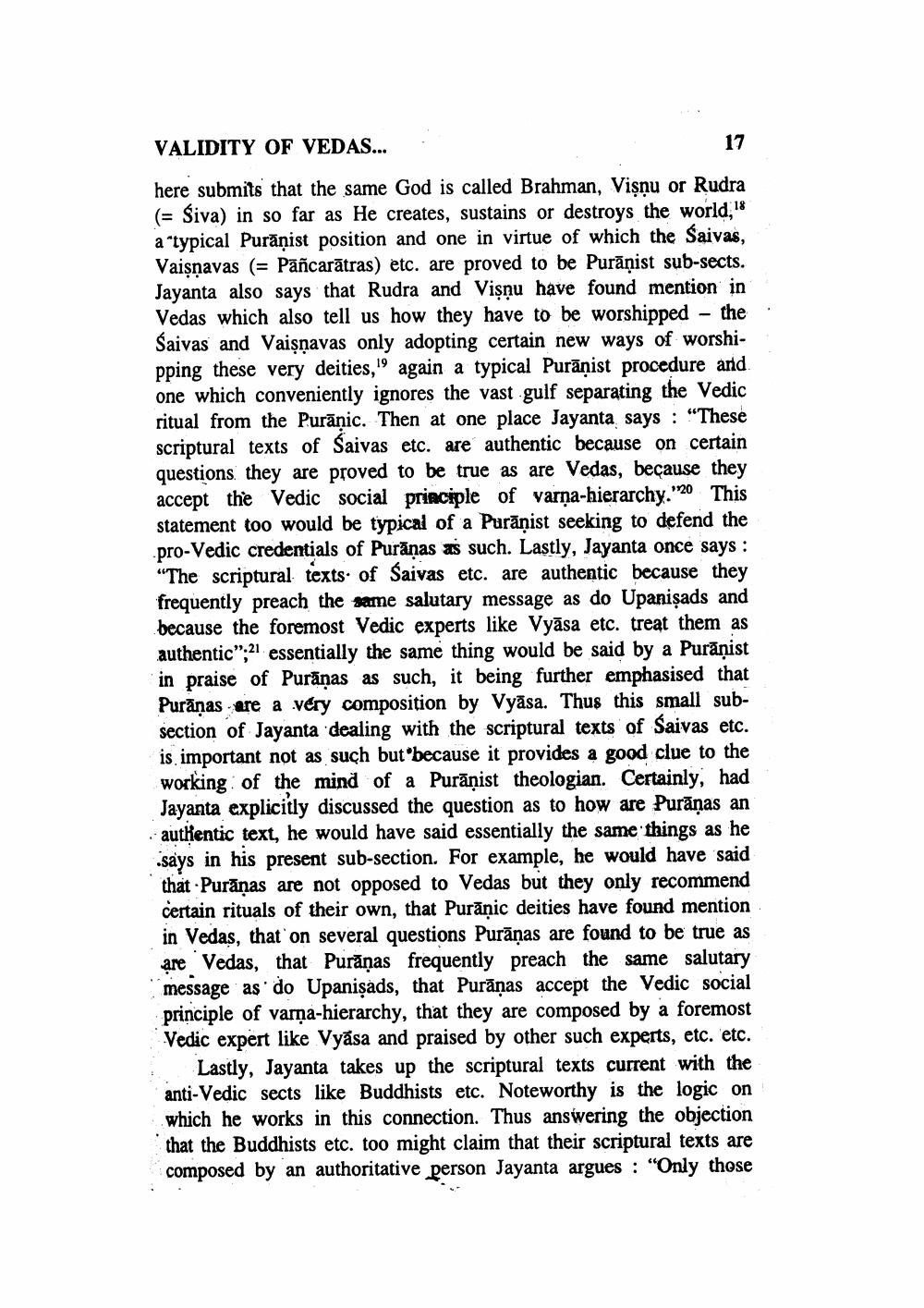________________
VALIDITY OF VEDAS...
17
here submits that the same God is called Brahman, Vişnu or Rudra (= Siva) in so far as He creates, sustains or destroys the world, 18 a 'typical Purāņist position and one in virtue of which the Saivas, Vaisnavas (= Pañcarātras) etc. are proved to be Purāņist sub-sects. Jayanta also says that Rudra and Vişnu have found mention in Vedas which also tell us how they have to be worshipped - the Saivas and Vaisnavas only adopting certain new ways of worshipping these very deities,' again a typical Purāņist procedure and one which conveniently ignores the vast gulf separating the Vedic ritual from the Purāņic. Then at one place Jayanta says : "These scriptural texts of Saivas etc. are authentic because on certain questions they are proved to be true as are Vedas, because they accept the Vedic social principle of varņa-hierarchy. "20 This statement too would be typical of a Purāņist seeking to defend the pro-Vedic credentials of Purāṇas as such. Lastly, Jayanta once says: "The scriptural texts of Saivas etc. are authentic because they frequently preach the same salutary message as do Upanişads and because the foremost Vedic experts like Vyāsa etc. treat them as authentic";21 essentially the same thing would be said by a Purāņist in praise of Purānas as such, it being further emphasised that Purāņas are a very composition by Vyāsa. Thus this small subsection of Jayanta dealing with the scriptural texts of Saivas etc. is important not as such but because it provides a good clue to the working of the mind of a Purāņist theologian. Certainly, had Jayanta explicitly discussed the question as to how are Purāṇas an authentic text, he would have said essentially the same things as he .says in his present sub-section. For example, he would have said that - Purāņas are not opposed to Vedas but they only recommend certain rituals of their own, that Purānic deities have found mention in Vedas, thaton several questions Purāņas are found to be true as are Vedas, that Purānas frequently preach the same salutary message as do Upanişads, that Purāṇas accept the Vedic social principle of varņa-hierarchy, that they are composed by a foremost Vedic expert like Vyasa and praised by other such experts, etc. etc.
Lastly, Jayanta takes up the scriptural texts current with the anti-Vedic sects like Buddhists etc. Noteworthy is the logic on which he works in this connection. Thus answering the objection that the Buddhists etc. too might claim that their scriptural texts are composed by an authoritative person Jayanta argues : "Only those




